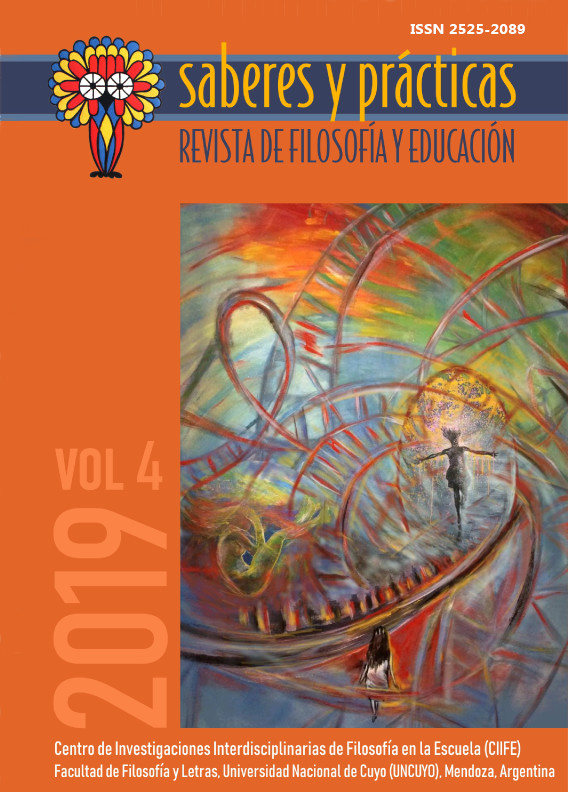Student´s Perception on Career Labeled for Men and Women and their Professional Preference
Keywords:
Student´s Perception on Career Labeled, Career choice, GenderAbstract
The purpose of this study is to compare the student´s perception on career labeled for men and women and identify their professional choice. The label is understood as an absolute truth that there are appropriate careers for each sex. The study is based on the contextual theory focuses in the sociological and psychological process in vocational decisions. A questionnaire survey was applied to 838 secondary school students who attended a Vocational Guidance Fair organized by the university in order to provide information about professional careers. The age ranging from 14 to 17, woman (53.8%) and men (46.2%), in the third, fourth and fifth grade studying in public and private educational institutions. The results suggest that male students perceive that men should study engineering whereas women perceive that both can choose biomedical careers. Most men choose careers labeled for men and most women careers labeled for women. Implications for future research are considered in the study.
Downloads
References
Baguer, Ángel y Ilzarbe, Laura. 2017. De la universidad al primer empleo: Éxito o fracaso de ti depende.
Barberá, Esther, Candela, Carlos y Ramos, Amparo. 2008. Elección de carrera, desarrollo profesional y estereotipos de género. Revista de Psicología Social, 23(2), 275-285. https://doi.org/10.1174/021347408784135805
Gnilka, Philip y Novakovic, Alexandra. 2017. Gender Differences in STEM Students' Perfectionism, Career Search Self"Efficacy, and Perception of Career Barriers. Journal of Counseling & Development, 95(1), 56-64. https://doi.org/10.1002/jcad.12117
Gutkin, Terry y Reynolds, Cecil (Eds.). (1990). The handbook of school psychology. 2º ed. United States of America: John Wiley & Sons.
Hernández-Sampieri, Roberto y Mendoza, Christian. 2018. Metodología de la investigación. Las rutas cuantitativa, cualitativa y mixta. México: McGraw-Hill
Lamas, Marta. 2000. Diferencias de sexo, género y diferencia sexual. Cuicuilco, 7(18). https://www.redalyc.org/comocitar.oa?id=35101807
Maltese, Adam y Cooper, Christina S. 2017. STEM Pathways: Do Men and Women Differ in Why They Enter and Exit? AERA Open. 28, 3(3). https://journals.sagepub.com/doi/pdf/10.1177/2332858417727276
Morales, Francisco y cols. 1994. Psicología social. Madrid: McGraw-Hill.
Morris, Charles. 1992. Psicología. Un nuevo enfoque. 7º ed. México: Prentice-Hall
Ministerio de Educación. Orientación Vocacional - Cartilla para Tutores Dirección de Tutoría y Orientación Educativa. 2013. Lima. Perú. http://tutoria.minedu.gob.pe/assets/cartilla-orientacion-vocacional-i.pdf
Pervin, Lawrence A. 1996. La ciencia de la personalidad. España: Editorial McGraw-Hill.
Real Academia Española (RAE). 2018. Diccionario de la Lengua Española. Edición del Tricentenario. https://dle.rae.es/?id=H4V2Z24
Rodríguez, Gabriela. 2011. Ética ¿Para qué? México: Pearson.
Sanz, Rafael. 2001. Orientación psicopedagógica y calidad educativa. Madrid: Pirámide.
Universidad Nacional de San Agustín de Arequipa. 2018. VII Feria de Orientación Profesional y Feria Vocacional. http://www.unsa.edu.pe/mas-de-10-mil-escolares-en-vii-feria-de-orientacion-profesional-de-la-unsa/
Downloads
Published
How to Cite
Issue
Section
License

This work is licensed under a Creative Commons Attribution-NonCommercial-ShareAlike 2.5 Argentina License.









